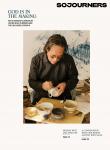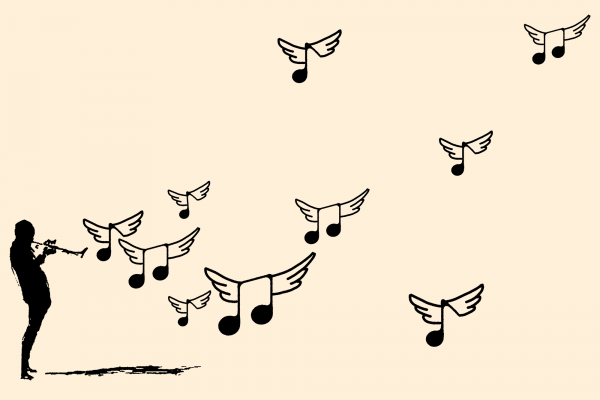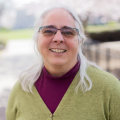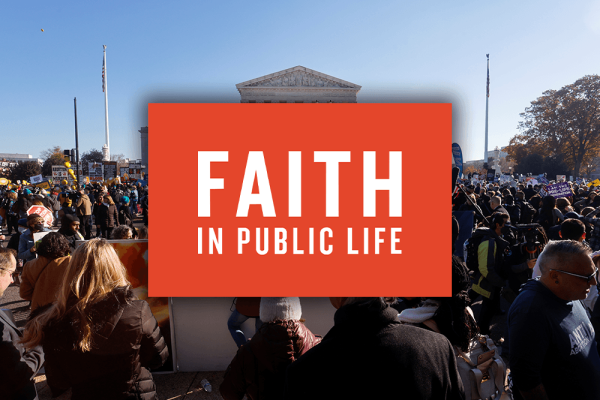WHEN THE CHAOS gets too much, I listen to jazz. I’m not an aficionado. I just know that brave jazz refreshes my freedom. Lately, I’ve been listening to a lot of jazz.
The stay of execution offered by a COVID-19 vaccine allows for a giddy, perilous optimism. Even a minute crack in our coronavirus armor brings up emotions too dangerous, too chaotic to express: A trembling wave of the suffering we have endured, heavy across the shoulders like the splintery weight of the cross.
For ballast against overwhelming rage, I turn to The Five Quintets by poet Micheal O’Siadhail: “Be with me Madam Jazz I urge you now, / Riff in me so I can conjure how / You breathe in us more than we dare allow.”
Miles Davis’ Sketches of Spain, particularly “Solea,” is a mainstay for this kind of Lent. A reviewer described this 12-minute composition—part flamenco, part blues—as “a revelation of spirituality in solitude.” According to the liner notes, the rhythms were so complex that some in the orchestra found it hard to stay in tempo. But Davis’ trumpet cuts like a sword of truth over the martial clatter of hooves on cobblestones and Calvary’s unrelenting military tattoo, while the snare keeps up a marching beat toward the inevitable outcome on Golgotha. Davis seems to “capture” the crucifixion in complex cante jondo (“deep song”). Suffering does not have the final word. The melody is so strong, Davis said, “that the softer you play it, the stronger it gets.”
I’ve also been listening to the sacred choral music of cool jazz legend Dave Brubeck. Brubeck not only pioneered the 1950s West Coast jazz sound but made art that deepened faith immersed in justice. Raised as a Presbyterian, he joined the Catholic Church as an adult. His experiences in World War II, where he led the first racially integrated Army band, became fodder for his songs on the tragedy of war and the things that make for peace. War changed him. Surviving war changed him. “Fifty-six million people died because they forgot ‘Thou shalt not kill,’” he said.
In 1968, Brubeck composed an oratorio to “remind people of the true beliefs of Christianity.” The Light in the Wilderness, Brubeck’s first sacred choral work, opens with his complicated and unnerving soundscape of Jesus’ baptism and wilderness temptations. “The temptation to rationalize one’s compromising as a means to gain idealistic ends is the theme of the wilderness dialogue between Jesus and the Devil,” wrote Brubeck in the performance notes. The chiasmic hinge of the oratorio speaks directly to the horror of war in the section “Love your enemies,” with the baritone soloist repeating the call “Love your enemies and do good to those who hurt you.”
Despite similarly themed later works, it’s The Real Ambassadors, written by Brubeck and his wife Iola in the late 1950s, that I’ve turned to during the four years of Trump’s assault and our long year of isolation. Ambassadors is a collaboration with Louis Armstrong (also a Catholic). Brubeck intended the work as a satire of the State Department’s Cold War “cultural diplomacy” programs. The government sent Black jazz ambassadors around the world while maintaining Jim Crow America at home.
At the 1962 Monterey Jazz Fest, Armstrong’s interpretation of the piece “They Say I Look Like God” brought the audience to their knees. What Brubeck wrote as parody, Armstrong sang straight. The chorus opens with a medieval plainchant rendering from Genesis 1:27 (“In God’s image, he created them”).
With Brubeck’s spare piano as intermediary, Armstrong’s Third Ward-inflected bass vocals rolled like a king tide: “They say I look like God. Could God be Black?” Armstrong sang. “You raised us from the dust and breathed a life with trust and gave to man the great choice to be alone on earth or one with Thee. ...When will that great day come? ... When God tells man he’s really free.” In the recording, you can hear his voice drop with emotion in repetition of the final phrase, “really free.”
Jazz is the consummation of all that is truly human, the best of our polyphonic harmonies, a wild, joyful freedom born of shared suffering. “Is music pleasure, prayer, and praise in one?” asks O’Siadhail. “The horns and harps of paradise play jazz.”

Got something to say about what you're reading? We value your feedback!







